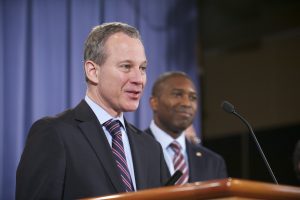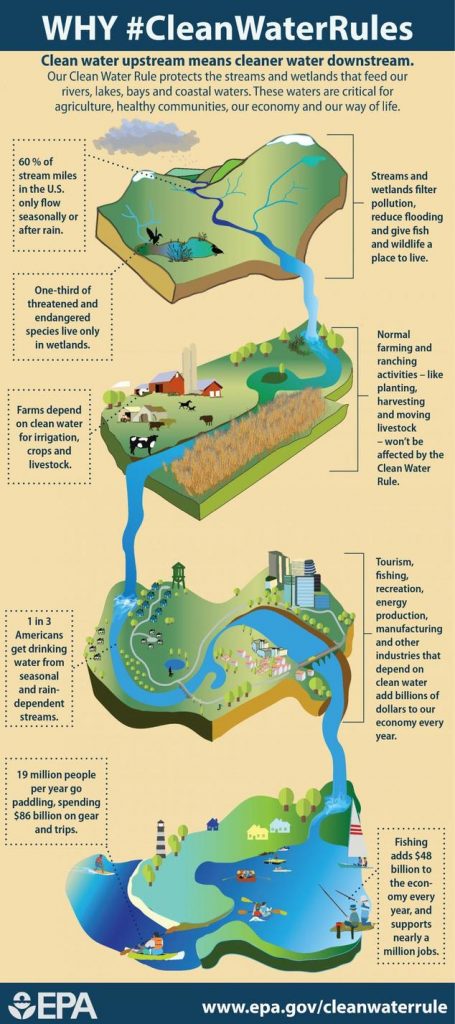
State attorneys general scrap over Clean Water Rule
Water wars over diversions from the Great Lakes subsided after a mayors’ group dropped its legal challenge to Waukesha’s diversion request in August.
But legal battles over water quality and who will regulate it continue full speed ahead nationally with state attorneys general dueling over the Clean Water Rule.
The skirmish escalated last week as New York Attorney General Eric Schneiderman told the U.S. Environmental Protection Agency and the Army Corps of Engineers that their efforts to overturn the rule were “arbitrary and capricious,” a key legal standard.
Schneiderman also said that EPA Administrator Scott Pruitt’s role in repealing the rule is “illegal” since as Oklahoma attorney general, Pruitt filed suit to “negate” the rule, according to his press release.
Pruitt is no stranger to lawsuits against the EPA. As Oklahoma attorney general he brought 14 proceedings against the agency challenging Obama administration rules
Schneiderman was joined by attorneys general from eight other states. New York was the only Great Lakes state to sign the letter to EPA and the Army Corps.
A 25-state coalition led by Wisconsin Attorney General Brad Schimel including Michigan, Indiana and Ohio has told EPA and the Army Corps that the rule allowed the agencies to “improperly expand their jurisdiction” over waterways and want the federal government to defer to the states.
The Clean Water Rule is preventative and was promoted by the Obama Administration to define which waterways come under regulation by the Clean Water Act. The Trump administration moved quickly to begin to repeal the rule citing overreach on the part of the federal government.
The rule is widely opposed by agriculture interests and farm bureaus who fear additional federal regulation over their creeks and ditches. The Michigan Farm Bureau has said that the rule is a “power grab” and supports Michigan Attorney General Bill Schuette’s efforts to repeal it.
Asked by Great Lakes Now if Schuette is still working to repeal the rule spokesperson Andrea Bitely responded that “the lawsuit has not been withdrawn.”
Schuette recently announced his candidacy for governor to replace Gov. Rick Snyder who is term-limited.
On release of the rule, EPA and the Army Corps attempted to address the concerns of farmers in a detailed statement published in an ag trade publication. The agencies said the rule would provide clarity on the waterways that may be regulated and that it wouldn’t impinge on their farming operations.
Contacted by Great Lakes Now for a comment on Schneiderman’s action, the Army Corps deferred to EPA.
EPA spokesperson Liz Bowman said referring to Schneiderman’s action, “you can’t challenge a proposed rule.” Bowman said Pruitt’s recusal reflects federal ethics rules that distinguish between permits and lawsuits and regulations.
“Tweets become rules”
Squabbling over water is part of a larger legal tug of war playing out since the Trump administration – with its penchant to roll back regulations – took office in January.
“As Trump’s tweets become rules, I expect his agenda will face legal opposition every step of the way,” water attorney Noah Hall told Great Lakes Now.
Hall is a law professor at Wayne State University and founder of the Great Lakes Environmental Law center.
But Hall said “court challenges to proposed environmental regulations were already the norm in prior administrations, from both environmental groups and business interests.”
Will the lawsuits and legal pleadings over water continue?
“The more change Trump’s administration proposes; the more legal challenges will follow,” according to Hall.
Hall said while legal challenges to rules are an “uphill fight, there’s little downside or risk to an all hands, all fronts push-back.”







